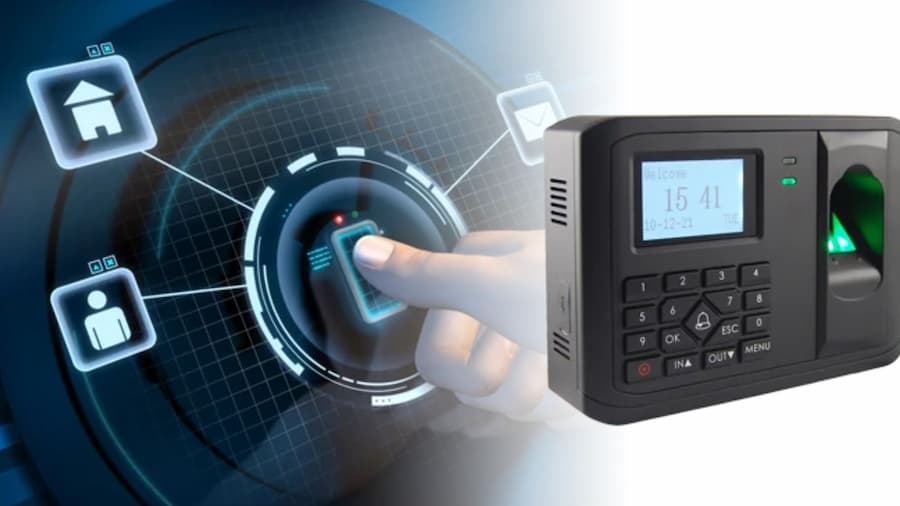When you implement an access control system in the workplace it automatically offers many benefits that enhance security, safety, and convenience. These systems provide a sophisticated layer of protection by restricting unauthorised access and mitigating the risk of theft, vandalism, and unauthorised entry. Access control system installation at the workplace enhances security, safety, and convenience, benefiting both employees and employers.
Beyond security, access control systems improve safety by regulating access to hazardous areas and ensuring only qualified personnel enter. They also offer convenience by eliminating the need for traditional keys, simplifying employee access, and reducing the risk of lost or stolen keys. These systems must be integrated with other security measures, such as CCTV cameras and alarms, to provide a comprehensive security solution.
Increase in Ease of Access for Employees:
Access control systems at the workplace can significantly increase the ease of access for employees. Employees no longer need to carry or keep track of physical keys with keyless entry and personalised access permissions. This streamlined approach reduces the risk of lost or stolen keys and eliminates the hassle of constantly replacing or reissuing them. Integration of access control systems with time and attendance tracking simplifies employee processes. Overall, these systems make it easier and more convenient for employees to access the workplace, enhancing their overall experience.
Real-Time Activity Tracking:
Implementing an access control system in the workplace offers the invaluable benefit of real-time activity tracking. This system allows employers to monitor employee movements within the premises, providing insights into attendance patterns and ensuring staff are where they need to be. Real-time tracking enhances security measures by immediately flagging unauthorised access attempts or suspicious behaviour.
Additionally, this feature fosters a safer environment by enabling quick responses to emergencies or incidents. By providing a comprehensive view of employee activity, access control systems not only bolster security but also optimise workflow and resource allocation, ultimately contributing to a more efficient and secure workplace.
Enhanced Security:
One of the major benefits of implementing an access control system is to enhance security by restricting unauthorised access. This system prevents potential threats such as theft, vandalism, and unauthorised entry, ensuring a safer environment for employees and assets. By using access cards, biometric device scans, or keypads, only authorised personnel can enter specific areas, reducing the risk of security breaches.
Moreover, access control systems provide a record of who enters and exits the premises, aiding in monitoring and identifying any suspicious activity. Overall, enhanced security is a crucial benefit of implementing an access control system, promoting a safer and more secure workplace.
Setting Specialised Access Parameters:
Setting specialised access parameters is a key benefit of implementing an access control system in the workplace. This feature allows organisations to tailor access permissions based on individual roles, ensuring that employees only have access to the areas and resources necessary for their job functions. By setting these parameters, organisations can enhance security, reduce the risk of unauthorised access, and improve overall operational efficiency.
Additionally, specialised access parameters enable organisations to easily manage access permissions as employees change roles or leave the company, streamlining the process and minimising the risk of errors. Overall, this feature helps organisations maintain a secure and efficient work environment.
Flexible Access Control:
Flexible access times help in enhancing employee satisfaction and productivity. With such a system in place, employees can often access the premises outside standard working hours, enabling them to work at their own pace and schedule. This flexibility can be particularly beneficial for employees with personal commitments or those who prefer working during off-peak hours. Additionally, it can help accommodate remote or flexible working arrangements, fostering a more dynamic and adaptable work environment. Overall, flexible access times contribute to a more inclusive and employee-friendly workplace culture.
Cost-Effectiveness:
Implementing an access control system at the workplace offers a range of cost-effective benefits. While there’s an initial investment, long-term savings are significant. Traditional key-based systems incur costs for rekeying, lost keys, and security breaches. Access control systems eliminate these expenses by providing a secure, keyless entry solution.

They also reduce the need for on-site security personnel, further cutting costs. Additionally, access control systems can integrate with other security systems, enhancing overall efficiency and reducing maintenance expenses. With these cost-saving features, access control systems offer a smart and economical security solution for businesses of all sizes.
Conclusion – Access Control Systems:
By preventing unauthorised access, these systems reduce the risk of theft, vandalism, and accidents, promoting a safer working environment. The convenience of access control systems, with no need for traditional keys, improves employee access and reduces the hassle of lost or stolen keys.
Additionally, these systems provide monitoring and tracking capabilities, helping employers keep track of employee movements and attendance. While there is an initial cost, the long-term cost-effectiveness and compliance with regulatory requirements make access control systems a valuable investment for any workplace.




